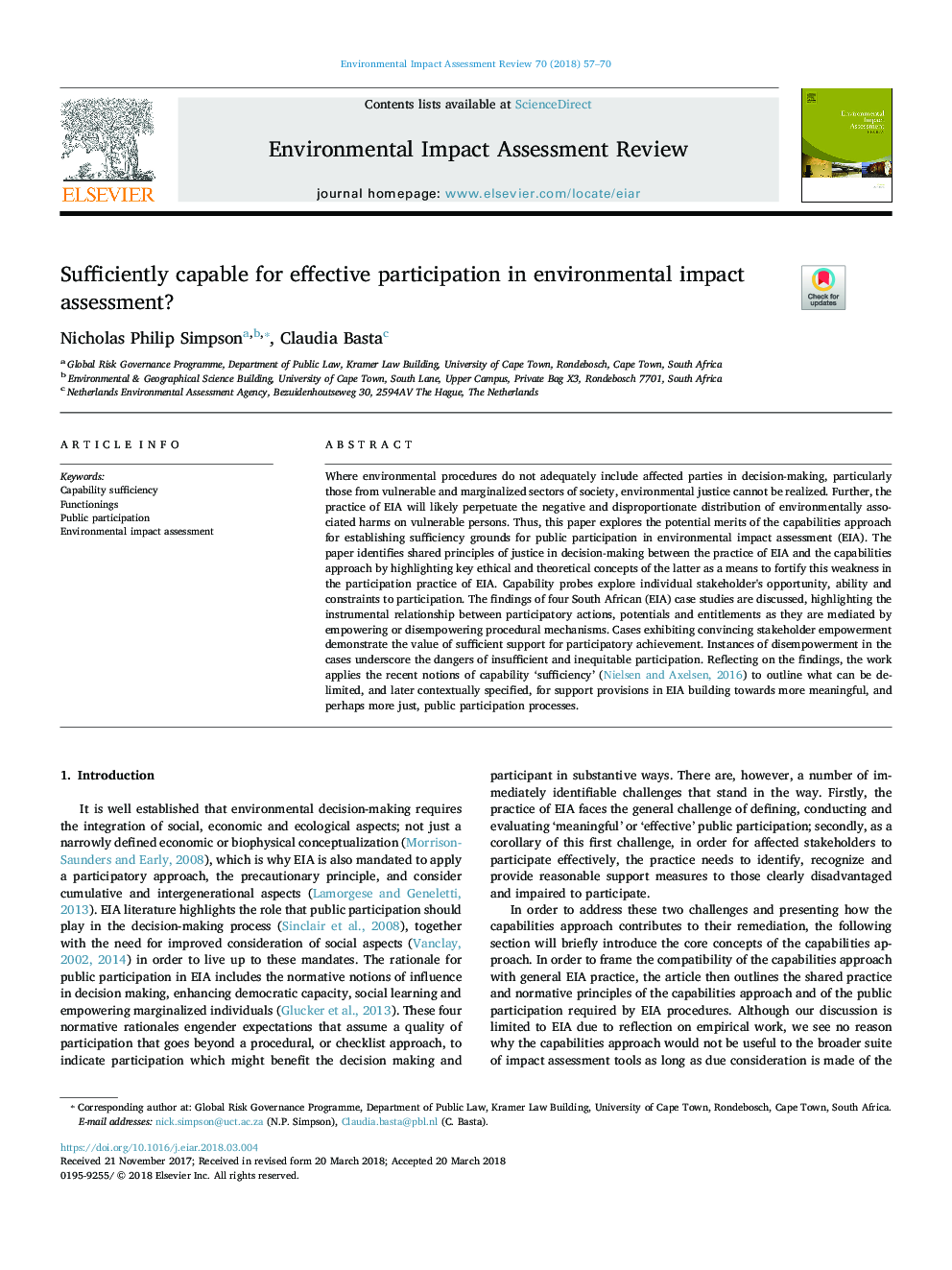| Article ID | Journal | Published Year | Pages | File Type |
|---|---|---|---|---|
| 7464871 | Environmental Impact Assessment Review | 2018 | 14 Pages |
Abstract
Where environmental procedures do not adequately include affected parties in decision-making, particularly those from vulnerable and marginalized sectors of society, environmental justice cannot be realized. Further, the practice of EIA will likely perpetuate the negative and disproportionate distribution of environmentally associated harms on vulnerable persons. Thus, this paper explores the potential merits of the capabilities approach for establishing sufficiency grounds for public participation in environmental impact assessment (EIA). The paper identifies shared principles of justice in decision-making between the practice of EIA and the capabilities approach by highlighting key ethical and theoretical concepts of the latter as a means to fortify this weakness in the participation practice of EIA. Capability probes explore individual stakeholder's opportunity, ability and constraints to participation. The findings of four South African (EIA) case studies are discussed, highlighting the instrumental relationship between participatory actions, potentials and entitlements as they are mediated by empowering or disempowering procedural mechanisms. Cases exhibiting convincing stakeholder empowerment demonstrate the value of sufficient support for participatory achievement. Instances of disempowerment in the cases underscore the dangers of insufficient and inequitable participation. Reflecting on the findings, the work applies the recent notions of capability 'sufficiency' (Nielsen and Axelsen, 2016) to outline what can be delimited, and later contextually specified, for support provisions in EIA building towards more meaningful, and perhaps more just, public participation processes.
Related Topics
Physical Sciences and Engineering
Energy
Renewable Energy, Sustainability and the Environment
Authors
Nicholas Philip Simpson, Claudia Basta,
